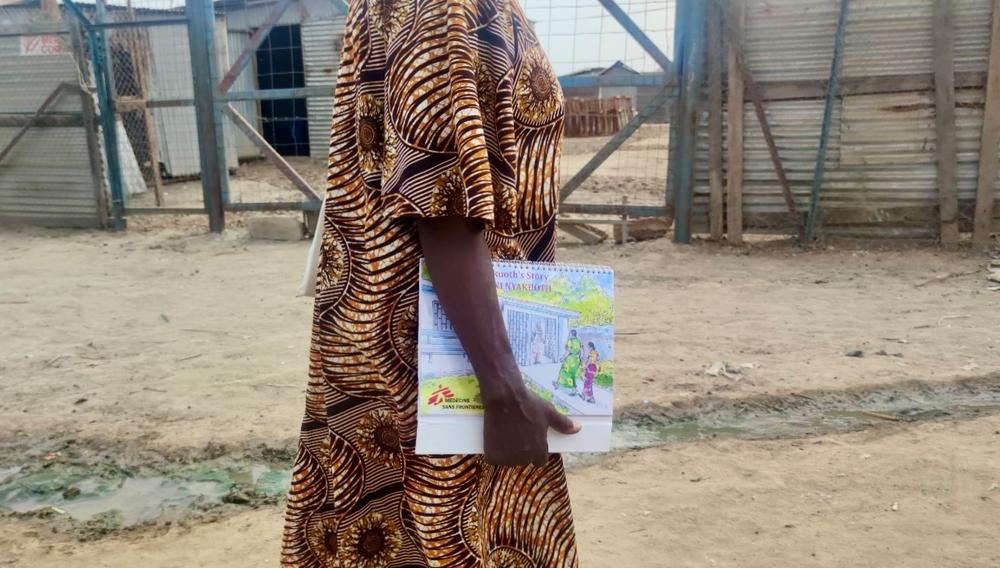“Violence towards women and girls is very common in South Sudan – it is because of gender inequality,” says Nyemal*. “But during a crisis it increases because of lack of protection for women and girls.”
Nyemal works for Médecins Sans Frontières / Doctors Without Borders (MSF) in Bentiu camp for internally displaced people, in the north of South Sudan.
The camp is large – around 105,000 people live here, including Nyemal herself, who arrived with her family around seven years ago to escape the ongoing armed conflict.
MSF has a hospital here, but that isn’t where Nyemal and her colleagues spend most of their time. They are “community focal points”: a team of women working within their own communities who raise awareness of sexual and gender-based violence, and provide one-to-one support to survivors. Their goal is to help women to access healthcare which might otherwise feel out of reach.
Years of ongoing conflict in South Sudan have resulted in high levels of poverty, lack of infrastructure and an underdeveloped healthcare system. On top of this, stigma and social norms mean that women and girls can face additional barriers to accessing care, especially after sexual or gender-based violence.
“If a woman goes to the hospital, people will gossip about why she is there,” Nyemal explains.
This stigma can mean survivors of violence don’t feel able to access the medical care they need. The consequences for their health can be serious, including unwanted pregnancies, sexually transmitted infection, and mental health issues.
So Nyemal and her colleagues are bridging the gap. They are trusted, specially trained community members, offering care like psychological first aid, emergency contraceptives and referral to specialist health services available at the MSF hospital.
And as Nyemal says, the needs especially high during times of crisis, when people can find themselves vulnerable in new ways. To explain, she gives the example of the devastating floods affecting Bentiu and surrounding areas. The floods mean that people are not able to cultivate land for food production, so they must seek other options to survive, such as gathering wood to sell. But going out to collect it can put women and children at increased risk of sexual assault. Women and children are walking even further distances to find dry wood, leaving them more exposed. If an assault takes place, says Nyemal, “no one is arrested and held to account.”
Since the camp was established in 2013, MSF has been offering quality and comprehensive medical care for survivors of sexual and gender-based violence. The community-based care program was established in November 2021, and has since treated 6,051 survivors of sexual violence, as well as provided emergency contraception to many other women.
While the program is having an impact in Bentiu, for Nyemal, this is only a small part of the picture.
“My wish for the future is for equality and human rights of women and girls in South Sudan,” says Nyemal. “I hope for peace and for violence to be reduced so we can be protected from harm.”
*Name changed to protect identity
